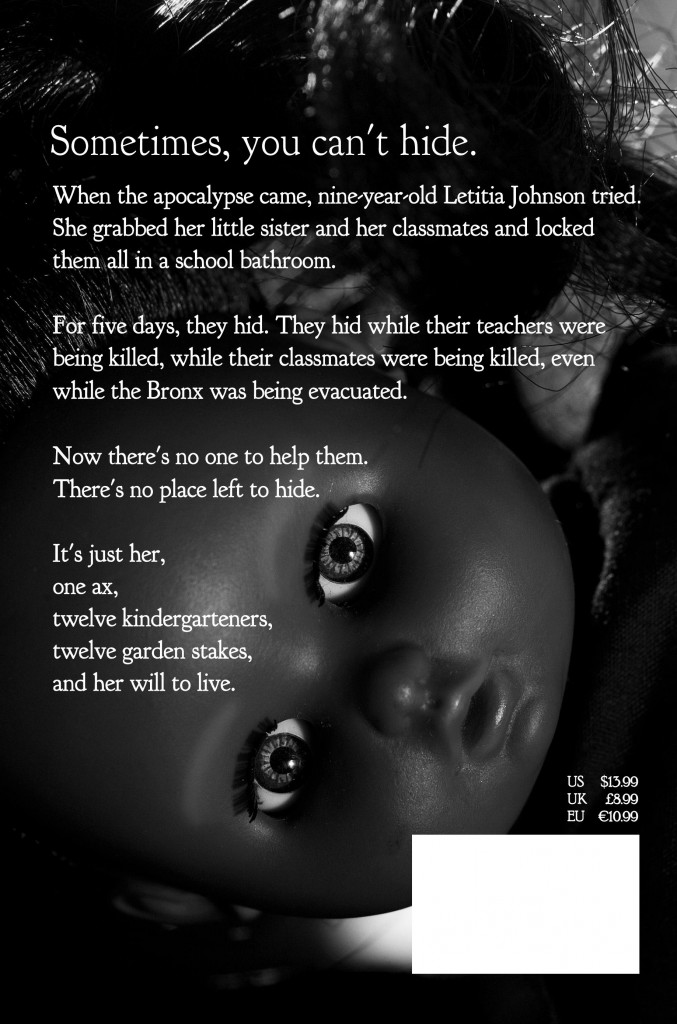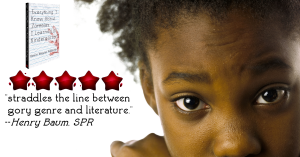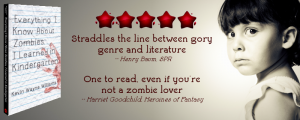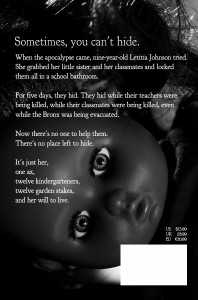I’ve been caught up in a few Twitter conversations recently, and I have to  admit that I hate the format. 140-character chunks of thought thrown at each other in a fragments, landing in a heap where it’s difficult to sort out precisely what sentence is a reply to what sentence, does not an intelligent debate make.
admit that I hate the format. 140-character chunks of thought thrown at each other in a fragments, landing in a heap where it’s difficult to sort out precisely what sentence is a reply to what sentence, does not an intelligent debate make.
But, I guess that’s why I have this blog. I rarely use my own: I get better exposure over at Jamie Broadnax’s Black Girl Nerds , but I want this out under my own name.
Diversity in fiction is a wonderful thing. It’s something that we all need to strive for, but it’s something that we all need to strive for together. There was a recent article in The Guardian by Aminatta Forma that made an eloquent plea for diverse authors to be able to write about things outside of their own personal experience:
All this classifying, it seems to me, is the very antithesis of literature. The way of literature is to seek universality. Writers try to reach beyond those things that divide us: culture, class, gender, race. Given the chance, we would resist classification. I have never met a writer who wishes to be described as a female writer, gay writer, black writer, Asian writer or African writer. We hyphenated writers complain about the privilege accorded to the white male writer, he who dominates the western canon and is the only one called simply “writer”.
She makes a further, salient point later on in the discussion:
I wonder if the increased trend to historical fiction does not represent a retreat to a safe haven on the part of some white writers who feel damned if they do and damned if they don’t include people of colour and their experiences.
“Damned if you do, damned if you don’t“. There’s something I can sympathise with. After all, there’s the other recently widely-discussed article in the Guardian, Sunili Govinnage‘s report of reading only books by non-whites for a year, followed by K.T. Bradford’s I Challenge You to Stop Reading White Straight CIS Male Authors For One Year that appeared in XOJane. The comments in both went wild, with arguments of reverse racism being made. I look at it, and feel like both sides miss a point.
It’s not just readers.
It’s not just writers.
We’re all in this together.
We all want the world to change. We want it to stop being a place where some people are excluded, and where we get the feeling that when they are included, it’s because some boardroom made a decision based on a spreadsheet that optimised precisely how much blackness they could put in the Fantastic Four before they lost sales. (FWIW, I can hear those discussions in my head as I type, including the one where they refused to make Reed Richards black because that would imply that he had a relationship with a white woman and that would alienate too many people).
When I brought my book to agents, I was told several times to whiten the cast. I refused, not out of some noble motivation, but simply because the story I had written wasn’t about a bunch of white kids from Long Island. White kids from Long Island would have had a different set of problems and would have a different story. I couldn’t just spray-paint Letitia and Jahayra with white paint and get a story that made any sense.
Beta-readers weren’t all that different: I had one tell me that she wasn’t interested in finishing the novel once she discovered that the leads were black because she “wasn’t into black culture”. Precisely why she thought a story of children struggling for survival required her to appreciate black culture wasn’t clear to me, and it was apparent that it wasn’t clear to her. What was clear to her was that she didn’t want to read about black people. This was a clue to me that those publishers and agents weren’t wrong, exactly. I could accuse them of not being socially responsible, or unwilling to take risks, or all kinds of things, but they were right in one sense: there’s a subset of white readers that will stop reading a book once they find out the cast isn’t white.
I ultimately self-published, and had to choose my marketing campaign. I seriously considered using a pseudonym, hiding my identity as a “white straight CIS male author” (sorry, I actually am all of those things). I didn’t, choosing my own name and my own face. Once that was selected, I had to choose my marketing imagery.
hiding my identity as a “white straight CIS male author” (sorry, I actually am all of those things). I didn’t, choosing my own name and my own face. Once that was selected, I had to choose my marketing imagery.
We all get upset about stories of  white-washing, where the race of the protagonist is hidden or minimized. I chose the frontal assault approach instead, with two different images being featured in my ad campaigns, one set with Letitia, the lead, and another set with Rosarita, an important secondary character.
white-washing, where the race of the protagonist is hidden or minimized. I chose the frontal assault approach instead, with two different images being featured in my ad campaigns, one set with Letitia, the lead, and another set with Rosarita, an important secondary character. I thought these two images would serve to illustrate the cast and the point well. No one can doubt that Letitia is black, and the little Cuban girl pictured as Rosarita is distinctly Latina.
I thought these two images would serve to illustrate the cast and the point well. No one can doubt that Letitia is black, and the little Cuban girl pictured as Rosarita is distinctly Latina.
The back cover image makes no bones about the ethnicity of the cast, either.  There’s no doubt that the story is about a little black girl that is in serious, serious trouble.
There’s no doubt that the story is about a little black girl that is in serious, serious trouble.
Guess what? On a purely financial basis, the decisions I’ve made have been disastrous. I can track the results of my advertising campaigns and determine with reasonable accuracy who’s clicking the ads and what their social group is. Letitia’s face attracts attention from black readers (strangely enough, she’s most appealing to black British readers). Rosarita gets clicks from Hispanic audiences.
Neither attracts clicks from white, primarily English-speaking audiences. This confirms to me once again the point that all those agents and publishers I want to rail at are making an economic decision. I think it’s a short-sighted economic decision, but that’s what it is.
What we need to work on is a way to change those economics, and the way to change those economics is through inclusion. If people want to improve the way people like them are portrayed, you need to use your economic force to buy books about them, but you also need to support all kinds of diversity. I’d love it if you all ran out to buy my book, but that’s not the point of this article. Look for the behaviour you want to support, support it, and remember that is not just about any one group. If you are black and see an interesting book featuring an Asian character written by a Latino, pick it up. Figure out a way to talk to white friends and convince them that they, too, can pick up a book featuring black heroes and heroines and enjoy it.
Diversity isn’t about black people writing books about black people that only black people read, or Latinos writing books about Latinos that only Latinos read. That’s the path to a complete ghettoization of literature, and it’s a path to some smaller groups never getting to see themselves in literary works. That’s not where we want to go.